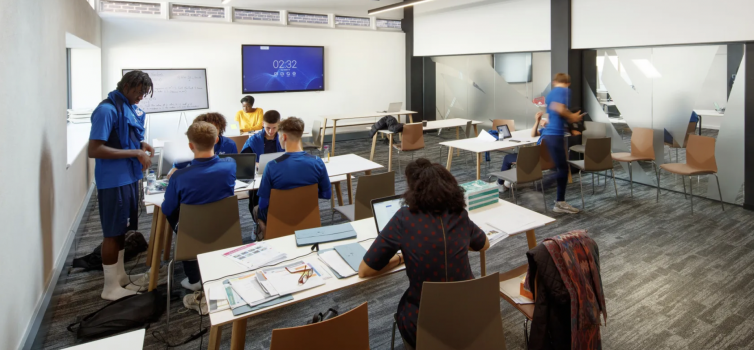All clubs urged to give three-year support to released youngsters

A classroom at Crystal Palace's new Academy
Written by Simon Austin — June 28, 2022
ALL Premier League and EFL clubs have been asked to give a three-year “commitment of support” to released Academy players under new rules passed by the Premier League.
The new rules apply to players released from Premier League and EFL clubs in the Professional Development Phase (17s to 21s) and there will be a “focus on mental and emotional wellbeing and facilitating new opportunities in football, education and wider career pathways.”
New guidance will be provided for clubs on what should be included within the Academy Player transition strategy required under the Youth Development Rules.
Furthermore, all Category One to Three Academies will be required to have a full-time member of staff responsible for Player Care for the first time. The Premier League is giving additional funding of £39,000 to every Category Two and Three club to help them fulfil this requirement.
The new rules follow the lead of Crystal Palace, who earlier this year became the first club in the country to offer a three-year aftercare programme for scholars trying to cope with the “trauma” of being released.
There has been criticism of clubs for not doing enough to support Academy players who are released. The new rules were agreed at the Premier League Annual General Meeting on June 9th and will come into force next season.
In February, we reported that Palace had employed a dedicated Player Care Officer to keep in contact with all of their released PDP players “for an extended period of time as we support them on their journey.”
Palace Chairman Steve Parish explained: “We have a duty and moral obligation to nurture and guide all the 200+ players within our care. We recognise that when an older Academy player is released, it may feel like the end of the world for that young man and we must do our utmost to offer support to affected players through that process and guide them with the next stage of their journey.
“That typically begins with us providing introductions to new clubs or continuing to include the players in matches to enable other clubs to watch them play. But it may also be about helping them continue their education or begin a life outside of football in the workplace. Whatever their path is, we want to offer our support to them to help them achieve success.”
Liverpool have an Alumni Database and newsletter, as well as proving “proactive individual support” for scholars who are released. Southampton also have an Alumni Database that tracks players who have been released at the end of their scholarship (U18). This database, which stood at 165 players in the summer of 2019, is managed by the club's Life Education and Performance Officer Ian Herding.





-1.png)





